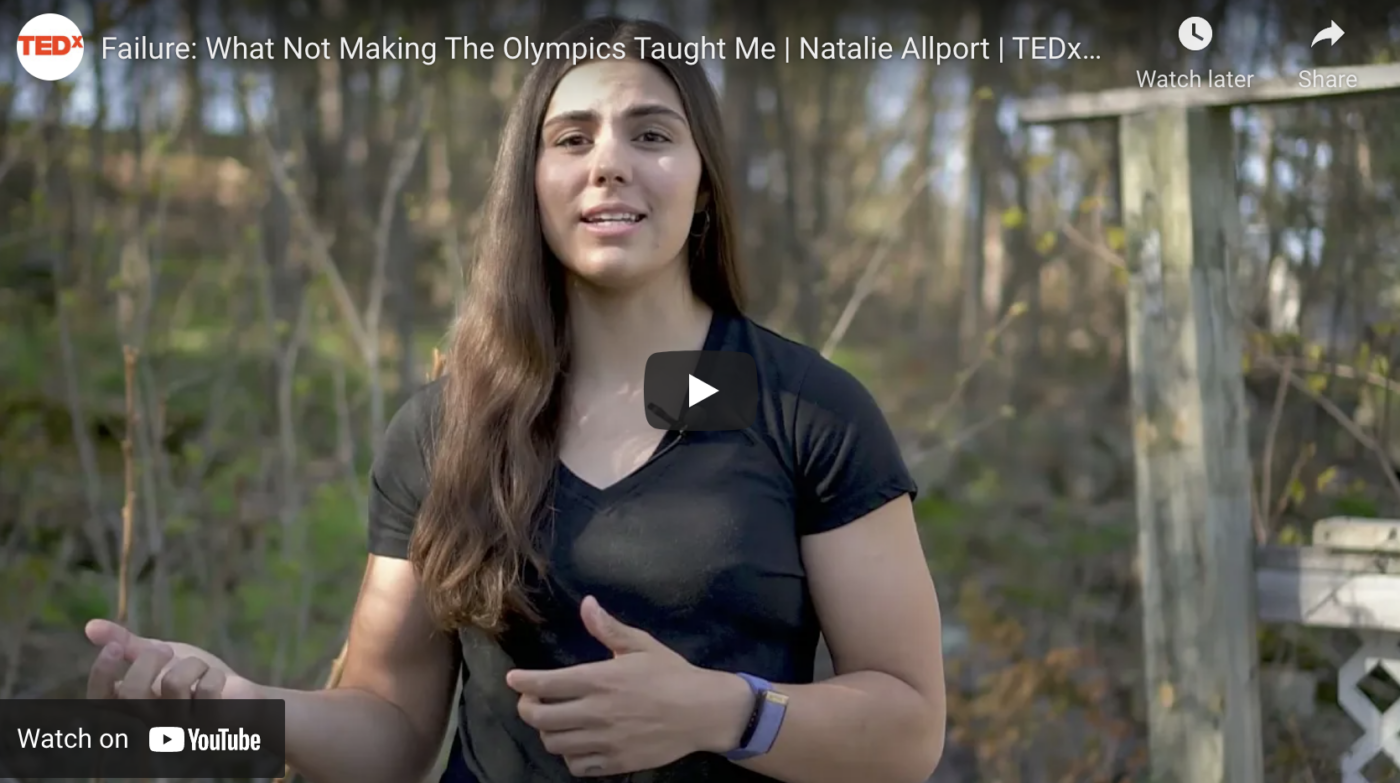Failure is a scary word to many youth and adults alike. However, the top achievers in the world, and some of the happiest people as well, know that failure is simply part of the process. However, the stigma of failure, especially public failure, is very real. Because we are often taught to attach our identities to our goals from a young age, and are rewarded in school and sport on results rather than on effort, we are setting ourselves up to fail, literally. Many top athletes and CEOs are coming forward to speak about their mental health, and how this need for perfection and achievement, or worry of future failure, has led to anything but happiness. But what if we could find freedom in failure? To embrace it? To learn to embrace failure we need to flip the concept on its head. What if we could never fail again simply by looking at failure through a different lens? By changing the way we look at goals, we can begin to find enjoyment in the process of becoming our best selves.
Natalie Allport is a former national team snowboarder who made the bold claim at 3 years old that she would go to the Olympics some day. In 2014, she had her chance, but fell short of a qualifying spot on the Olympic team, and ultimately retired from the sport shortly after due to injury and mental health. Today she is a successful entrepreneur, global CrossFit athlete, and passionate speaker, but her success is not because of those accomplishments. She prides herself on the lessons she has learnt through going ALL IN, falling short, and learning the art of failing forward. Natalie is a self-proclaimed ‘proud try hard’ and is determined to change the narrative that surrounds the word ‘failure’ as well as the limiting beliefs that hold us back from pursuing our greatest passions. After all, the biggest risk in life isn’t going ALL IN and falling short, it’s not trying at all.
This talk was given at a TEDx event using the TED conference format but independently organized by a local community. Learn more at https://www.ted.com/tedx

